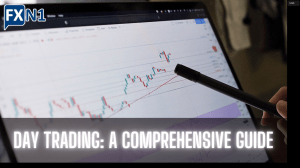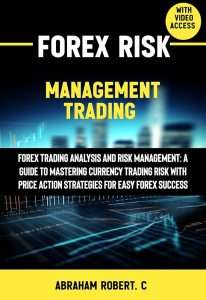Choosing the Right Forex Broker: A Comprehensive Guide
Choosing the right Forex broker is crucial for success in the foreign exchange market. The vast number of options available can be overwhelming for both novice and experienced traders. This comprehensive guide will help you navigate the complexities of broker selection, highlighting key factors to consider and providing insights into some of the top-rated platforms. We’ll delve into the features, fees, regulatory compliance, and overall reputation of several leading brokers, empowering you to make an informed decision.
Understanding the Forex Market and Broker Selection
The foreign exchange market, or Forex, is a decentralized global marketplace where currencies are traded. Unlike stock exchanges, Forex operates 24 hours a day, five days a week, offering constant trading opportunities. However, this accessibility also necessitates careful broker selection. A reputable broker provides access to the market, execution services, trading platforms, and various analytical tools. Choosing a poorly regulated or unreliable broker can expose you to significant risks, including fraud and the loss of funds.
Key Factors to Consider When Choosing a Forex Broker
- Regulation and Licensing: Ensure the broker is licensed and regulated by a reputable financial authority. This provides a layer of protection for your funds and ensures compliance with industry standards.
- Trading Platform: The platform should be user-friendly, reliable, and offer a range of features such as charting tools, technical indicators, and order execution capabilities.
- Spreads and Commissions: Compare the spreads (the difference between the bid and ask price) and commissions charged by different brokers. Lower costs can significantly impact your profitability.
- Account Types: Different brokers offer various account types catering to different trading styles and capital levels. Choose an account that aligns with your trading needs and risk tolerance.
- Customer Support: Reliable and responsive customer support is essential, especially during critical trading situations. Look for brokers offering multiple support channels such as phone, email, and live chat.
- Security Measures: Ensure the broker employs robust security measures to protect your funds and personal information. Look for features like two-factor authentication and encryption.
- Educational Resources: Many brokers offer educational resources such as webinars, tutorials, and market analysis to help traders improve their skills and knowledge.
Top Rated Forex Brokers: A Detailed Overview
While we cannot endorse any specific broker, we can provide an overview of some of the commonly mentioned and well-regarded brokers in the industry. Remember to conduct thorough due diligence before opening an account with any broker. This includes reading independent reviews, checking regulatory status, and understanding their fee structure.
Broker A: A Deep Dive into Features and Strengths
Broker A is known for its advanced trading platform, offering a wide array of technical indicators and charting tools. They also boast excellent customer support and a strong regulatory background. However, their spreads might be slightly higher than some competitors. They cater to both beginners and experienced traders with a variety of account types and educational resources.
Broker B: Focusing on Low-Cost Trading and Simplicity
Broker B emphasizes low-cost trading, attracting traders who prioritize minimizing expenses. Their platform is relatively straightforward, making it ideal for beginners. However, their range of features may be more limited than some competitors. They are known for their swift execution speeds and strong regulatory compliance.
Broker C: Specializing in Advanced Trading Tools and Analytics
Broker C stands out with its sophisticated analytical tools and advanced charting capabilities, appealing to experienced traders who require in-depth market analysis. Their platform is feature-rich but may have a steeper learning curve for beginners. They are highly regulated and have a reputation for reliable execution.
Broker D: A Balanced Approach to Features, Costs, and Support
Broker D offers a balanced approach, combining a user-friendly platform with competitive spreads and excellent customer support. They cater to a broad range of traders, providing a good balance between features and simplicity. Their regulatory compliance is robust, offering traders a secure trading environment.
Broker E: Emphasis on Educational Resources and Beginner-Friendly Features
Broker E distinguishes itself through its comprehensive educational resources, making it an attractive option for novice traders. They offer a variety of tutorials, webinars, and educational materials to help beginners understand the Forex market. While their spreads might not be the lowest, their commitment to education makes them a valuable choice for those starting their trading journey. They also maintain high standards for regulatory compliance and security.
Understanding Broker Fees and Charges
Broker fees can significantly impact your profitability. It’s crucial to understand the different types of fees charged by brokers, including spreads, commissions, overnight financing fees (swap fees), and inactivity fees. Carefully review the fee schedule of any broker before opening an account. Comparing fees across different brokers can help you identify the most cost-effective option for your trading style.
Common Types of Broker Fees: A Detailed Explanation
- Spreads: The difference between the bid and ask price of a currency pair. Tight spreads are generally preferred.
- Commissions: Fees charged per trade, in addition to spreads. Some brokers charge commissions, while others only charge spreads.
- Swap Fees (Overnight Financing Fees): Charges for holding positions overnight. These fees vary depending on the currency pair and the direction of your trade.
- Inactivity Fees: Fees charged if your account remains inactive for a certain period.
- Withdrawal Fees: Fees charged when you withdraw funds from your trading account.
The Importance of Regulatory Compliance and Security
Choosing a regulated broker is paramount. Regulation ensures that the broker adheres to industry standards, protects client funds, and operates with transparency. Look for brokers regulated by reputable financial authorities such as the FCA (UK), the NFA (USA), or ASIC (Australia). Security is equally crucial. Ensure the broker employs robust security measures to protect your personal information and funds from unauthorized access.
Choosing the Right Broker for Your Trading Style and Goals
The best Forex broker for you will depend on your individual trading style, experience level, and financial goals. Consider your risk tolerance, trading frequency, and the types of tools and resources you require. Beginners might prefer brokers with user-friendly platforms and ample educational resources, while experienced traders might prioritize advanced charting tools and low spreads. Remember to always prioritize security and regulatory compliance when making your selection.
Thoroughly research each broker, comparing their offerings, fees, and regulatory status. Read independent reviews and seek advice from experienced traders if needed. Making an informed decision will significantly impact your trading experience and potential for success in the Forex market. The process of selecting a broker should be approached with diligence and careful consideration of your individual needs. Remember, your success hinges, in part, on selecting a reliable and trustworthy platform.
Ultimately, the best Forex broker is the one that best fits your individual requirements. There is no single “best” broker for everyone. Take your time, compare options, and make a choice that aligns with your trading goals and risk tolerance. This due diligence will pay off in the long run.
Continuous learning and adaptation are key to success in Forex trading. Stay informed about market trends, refine your trading strategies, and regularly review your broker’s performance. Remember to manage your risk effectively and never invest more than you can afford to lose.
The Forex market presents both opportunities and challenges. By choosing a reputable broker and equipping yourself with the right knowledge and skills, you can significantly improve your chances of success. Remember, responsible trading practices are crucial for long-term profitability.
Successful Forex trading requires discipline, patience, and a well-defined strategy. Combine this with the right tools and a reliable broker, and you’ll be well-positioned to navigate the complexities of the global currency market.







